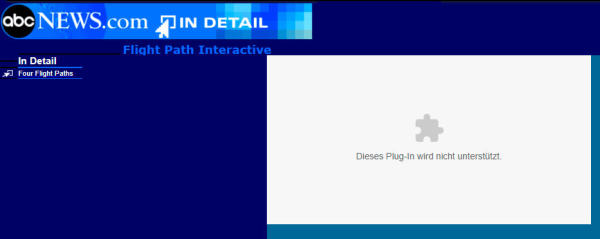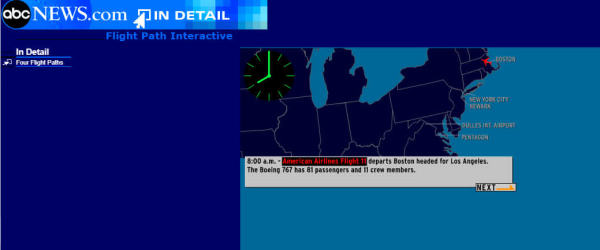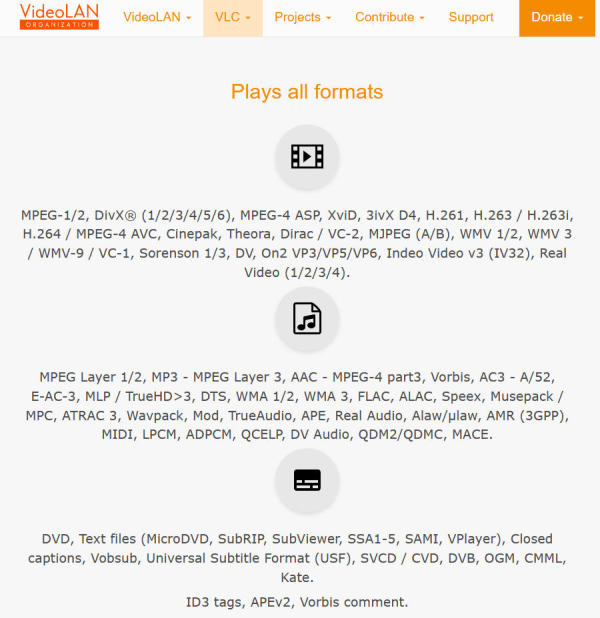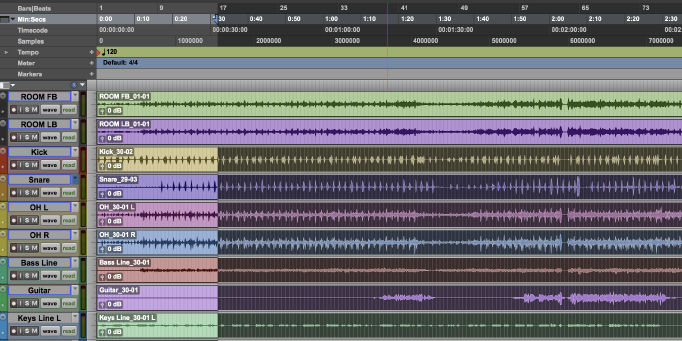[19:14 Sat,11.September 2021 by Thomas Richter] |
Today marks the 20th anniversary of the spectacular terrorist attack on the World Trade Center - but those who want to view the coverage including interactive features and videos from that time online often encounter a very special problem: Flash (formerly Macromedia CHECK, later Adobe), which was widely used at the time, has been  Interactive Flash graphic about 9/11 on ABC News Large media experimented just in their 9/11 reporting with dynamic or interactive contents, texts including diagrams and video, which were then programmed in Flash, as for example beside Some editorial offices have replaced at least some of the no longer accessible and particularly valuable content as documents of contemporary history with some effort by simple web pages including videos or HTML5 animations, such as §PIC2§:  Interactive Flash graphic about 9/11 on ABC News Even Adobe itself recommends uninstalling any remaining Flash players due to their security vulnerabilities. For its part, an Adobe spokesperson said in a statement, "Adobe has discontinued support for Flash Player as of December 31, 2020. Unfortunately, these older web pages can no longer be played because the loading of the Flash plugin is blocked in the browser. Like all Americans, we lived through the horrific events of 9/11 and understand the important role Flash played in helping media organizations portray and tell the stories of that tragic day."  Adobe EOL for Flash Player. Flash, which was legendarily buggy, often memory- or power-hungry, and full of security holes, has been replaced by the increasingly powerful (and open!) version 5 of HTML, which through its The problem with old media and formats - even digital.This highlights a general problem with proprietary standards in particular: if they are discontinued by the manufacturer and no new versions of the respective player are developed for new platforms, then content created in them ends up in the digital graveyard.  Obsolete media (Photo by Jason Curtis) We are used to the end of mechanical old media, such as VHS or Betamax video, 3 1/2 or 5 1/4 inch floppy disks, audio cassettes, various data tape formats (such as the Commodore Datasette), laserdiscs, various film formats - if you want to archive these old media and preserve them for posterity, you not only have to worry about the physical condition of the respective media (how fast does which material age? How can the aging be stopped, which can normally always mean a loss of data or even illegibility?), but also about keeping playback devices for the respective formats ready and in good condition. The Berlin Arsenal, for example, keeps numerous viewing and editing devices for films for its extensive film archive, because the digitization of cinemas means that there are fewer and fewer film projectors. Surprisingly, digital media also suffer from these problems - archiving them is easier because they only need to be stored on a digital storage device for access, but if there is no player for the respective media format that can interpret and display the data correctly (such as graphics, videos or interactive animations), then they are also dead. Especially the once ubiquitous distribution of Flash and its special role as a universal, cross-operating system and cross-browser platform, be it for interactive content on the web, animated web page menus, animations, videos up to games and utilities, makes its end especially painful.  Obsolete Media (Photo by Jason Curtis) In the worst case also hardware can be no more or only limited usable, because for the setup or the operation necessary or useful programs were programmed in Flash - so happened for example with  VLC player support formats. Open standards provide accessibility.All this speaks for the use of open rather than proprietary formats and such possible backward compatibility through new formats and players. For example, the popular open source VLC player supports deutsche Version dieser Seite: 20 Jahre 9/11 - wegen eingestelltem Flash fehlen viele Bilder |





